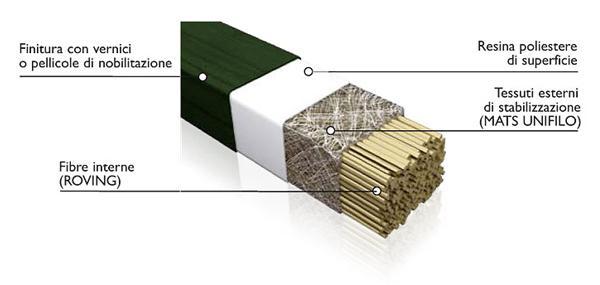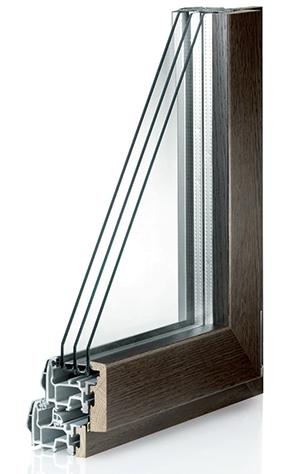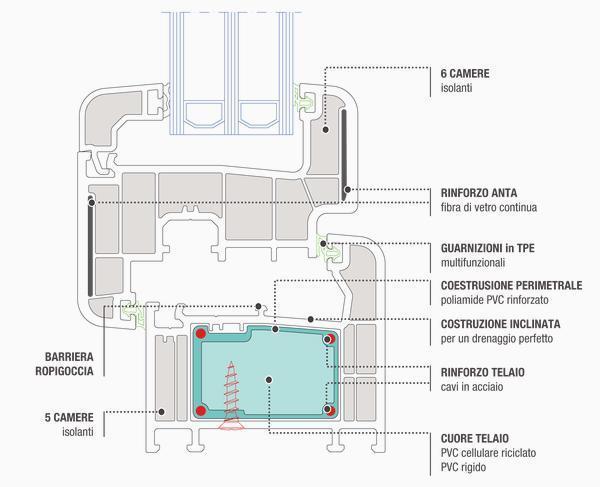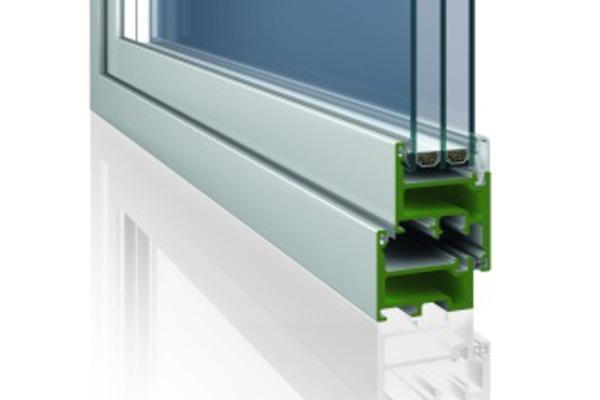Door in glass fiber
Post from EditorialsMore and more companies in Europe bet on the potential of the frames, thermal glass fiber, defined by many as the windows of the future.
The application of the glass fiber in frames
Material technology is evolving and in recent years has established a process that will change the root of the production method of doors and windows; the application of fiberglass instead of metal reinforcements normally used in window frames and laminated PVC it makes the difference and soon the big industries will have to adapt.
How to recognize the quality of a window
The windows are not all alike, and you can tell from the price of some products in comparison to others, but it is easy to recognize a wooden window from one in aluminum, which is the difference between two windows made of the same material and how to recognize the quality of a window frame?
What distinguishes a window of good quality by the low quality is not what you see from the outside, ie the inside of the window profile.
It is the profile that determines the proper functioning of a window, both mechanical and insulating.
A window must minimize the thermal bridge between outside and inside, but it must also resist to thermal shocks, to the mechanical stress (as the force exerted by the wind), the pressure exerted by its own weight.
The weight of a door with double glazing and of large dimension is not negligible, for this the windows and doors, in PVC, wood or aluminum, must be suitably dimensioned and equipped with reinforcing profiles.
The majority of the reinforcement profiles used in the production of PVC windows and doors are made in steel, a material capable of ensuring the sufficient mechanical resistance against a window frame which otherwise would deform when heated by the sun.
The metal reinforcement, although the cavities formed inside the profiles of the frames have the aim to reduce the transmittance, by its very nature constitutes a thermal bridge. It follows that while it is necessary to give stability to the window frame, the steel profile is a weak point to be taken into consideration.
The application of Fibex in doors and windows
Fibex is a composite material made of unidirectional not interrupted glass fibers, wrapped in a fabric of multidirectional fibers and impregnated with polyester resin.
The process of realization is defined pultrusion, (from the English pull which means to pull) and provides a particular extrusion technique performed under traction. 
The advantages of this innovative material are multiple, both in terms of resistance, and for weight and conductivity, making the application of the Fibex in window frames particularly suitable.
It is useful to compare the characteristics of the Fibex with those of the three materials mainly used in the sector, namely PVC, aluminum and wood.
By analyzing the three terms of reference: thermal conductivity, thermal expansion and weight per square meter, the Fibex stands out to be a material lighter than aluminum, but on the contrary to this, and especially PVC, dimensionally stable when subjected to a heat source .
The PVC is in fact the worst among wood and aluminum in terms of thermal expansion, but it is widely used in the industry of the frames due to the low thermal conductivity, only slightly lower than the Fibex.
Further characteristics of the Fibex are its water repellency and the excellent resistance to atmospheric and chemical agents which will void practically the need for maintenance.  The company that first developed this innovative material is Agostini Group, which has among the products in the catalog and its shutters in Fibex and the series 500 H Fibex Inside, a line of exclusive wood-aluminum windows with a heart in Fibex and with exceptional thermal transmittance values: up to 1.1 W/ m2K.
The company that first developed this innovative material is Agostini Group, which has among the products in the catalog and its shutters in Fibex and the series 500 H Fibex Inside, a line of exclusive wood-aluminum windows with a heart in Fibex and with exceptional thermal transmittance values: up to 1.1 W/ m2K.
Among the companies dedicated to the production of PVC reinforced with glass fiber instead of the traditional metal bars it is to point out Deceuninck.
In particular the company Deceuninck, known systems engineer Belgian PVC, for its line of windows Zendow#neo has developed the system Linktrusion, a special technique that provides two types of reinforcements aimed at door and frame.
The door being the movable element requires a greater reinforcement respect to the frame which, being integral with the wall is already stiffened by the anchoring hooks in the wall.
Thanks to an innovative manufacturing process, Linktrusion is able to strengthen the profiles of the leaf with a continuous strip of glass fiber effectively replacing the steel bars normally present that although by stiffening the structure are highly conductive.
Fiber strips are not positioned at the rear but are formed during the extrusion process of the profile, it is thus a door more rigid and lighter by 40% compared to the doors reinforced in a traditional way. The weight factor is crucial especially for large frames, for which the maneuverability must be guaranteed without efforts.
As regards the frame the metal bars are replaced by a core of low density PVC foam reinforced by four drowned metal cables.
The technology of the pultruded glass fiber
The use of the glass fiber is not limited only to reinforcements for PVC windows or wood-aluminum: is relatively recent implementation of a new type of door totally made of pultruded glass fiber and polyurethane resin and judging from very low values transmittance achieved, comparable to those of a tamponade opaque (a perimeter wall). There are many companies to bet on this new material for the window of the future.
Up to now the pultruded has found limited application in Europe, but in 2014 Inoutic, a German company controlled by Deceuninck, presented Innergy, a prototype of a frame consisting of 80% glass fiber and said to be 20 times more stable than a PVC window.
It is not hard to believe that this is just the beginning!
79806 REGISTERED USERS










